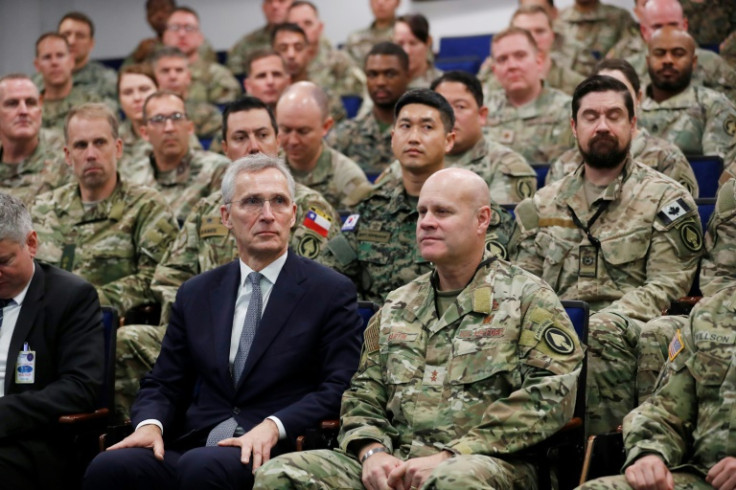
NATO chief Jens Stoltenberg will on Wednesday detail increased defence spending by members of the alliance, rattled after Donald Trump threatened to encourage Russia to attack countries paying too little.
The Republican White House frontrunner was widely rebuked after saying he would not defend NATO members who had not met their financial obligations, in his most extreme broadside yet against the organisation.
Trump's comments in a Saturday stump speech drew condemnation from leaders including US President Joe Biden -- whom he looks set to face in November's election -- and German Chancellor Olaf Scholz.
Scholz warned that casting doubt on NATO's collective defence guarantee which has safeguarded Europe since World War II was "irresponsible and dangerous".
Ahead of a meeting of defence ministers, Stoltenberg is due to unveil new estimates showing the number of NATO allies reaching the military spending target of two percent of GDP has almost doubled since last year.
Officials told AFP that around 20 of the alliance's 31 members are expected to hit the target, up from just 11 in 2023.
NATO in 2014 set a target for members to spend two percent of their gross domestic product on defence in response to Russia's seizure of Crimea from Ukraine.
During his time as president, Trump railed against Washington's NATO allies to pressure them to spend more on defence -- and he has claimed credit for increased spending.
Moscow's full-scale invasion of Ukraine in 2022 served as a wake-up call for European countries and saw NATO turn the two-percent figure into a minimum requirement.
Key players such as Germany have ramped up their defence spending and are expected to meet the target this year.
But the US still accounts for the vast bulk of combined defence spending by NATO members.
Trump's broadside against US allies has raised the nightmarish spectre for European officials of Washington tanking the 75-year-old alliance if he is re-elected.
It comes as warnings swirl that Russian President Vladimir Putin could look to target alliance members if Ukraine loses the war.
Stoltenberg said any suggestions that allies won't defend each other "undermines all of our security" and puts US and European soldiers at greater risk.
France said Europe needs another "life insurance" policy in addition to NATO to ensure the security of the continent.
Diplomats from multiple NATO countries counter that keeping the United States on board remains fundamental to deterring the threat from Russia.
But they also remain sanguine about how genuine Trump's threats are, arguing the alliance emerged from his first term unscathed.
While there is a focus on NATO's own defence spending, the pressing issue of support for Ukraine will also be on the table at the meeting on Wednesday.
US ambassador to NATO Julianne Smith on Tuesday pointed out that Europe has now surpassed the United States in its backing for Kyiv.
The US Senate on Tuesday approved long-delayed funding for Ukraine's war effort, but the package looks set to be rejected by the Republican-led lower house.
Doubts over the future of US aid come as Ukraine's forces find themselves outgunned in the face of a slow-moving Russian advance along the front line.
The meeting to rally more support for Kyiv was meant to be chaired in person by US Defence Secretary Lloyd Austin but he was forced to cancel his trip to Brussels after being hospitalised.




